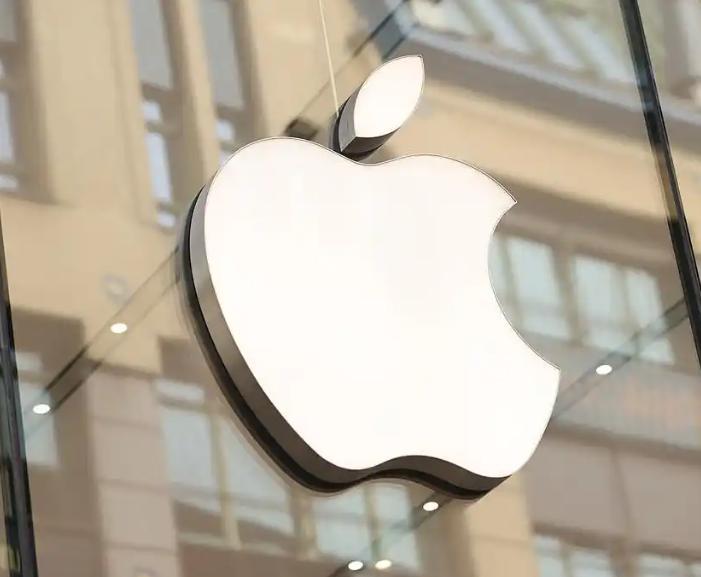
On April 23 local time, the European Commission said that the EU regulatory authorities fined Apple Inc. of the United States 500 million euros and Meta, the parent company of the US social media platforms Facebook and Photo Wall, 200 million euros for violating the Digital Markets Act. According to the statement of the European Commission, Apple violated the "anti-guidance clause" stipulated in the Digital Markets Act, while Meta violated the provision in the Digital Markets Act that gives consumers the right to choose to use "services with less personal data". Therefore, the committee imposed fines of 500 million euros and 200 million euros respectively on Apple and Meta. These two fines are the first fines issued since the implementation of the Digital Markets Law. The two companies must comply with the EU's ruling within 60 days; otherwise, they will face further financial penalties.
This penalty is a landmark event for the EU to strengthen the regulation of tech giants, and it also brings complex and multi-faceted impacts to the technology sector. One is the impact on Apple and Meta. Apple needs to lift the external link restrictions on its app store within 60 days. Developers can directly guide users to the official website or other platforms to complete purchases. This may lead to risks such as the reconstruction of the payment system, a decline in commission income, and an impact on its annual "Apple tax" revenue of approximately 22 billion US dollars. Apple once set up obstacles through technical means such as facial recognition and multi-page redirection, but was identified by the European Union as a "disguised barrier". This penalty will force it to completely open its payment channels. Its closed ecosystem is facing loosening or accelerating the development of alternative payment technologies. Meta needs to redesign its advertising and subscription models to balance the use of user data with compliance requirements. If the EU continues to determine that the new advertising model it launched in November 2024 is still in violation, it may face continuous fines. Although the fine amount is lower than the upper limit of "10% of global annual turnover" stipulated by the DMA, it exerts pressure on the enterprise's reputation and compliance costs. Apple and Meta may increase their compliance investment in the European Union and even adjust their regional market strategies.
The second is the impact on the landscape of the technology industry. After Apple opens up the external payment link, small and medium-sized developers may gain more channels to reach users. Developers can bypass the 30% commission of Apple and provide lower-price services through the official website or third-party platforms, enhancing their competitiveness. More independent App stores may emerge in the EU market, challenging the dominance of Apple's App Store. Reduce the reliance on the App Store. After Meta adjusted its advertising model and lost its "data dominance", the efficiency of its personalized advertising may decline. Advertisers may turn to advertising platforms that rely on context matching rather than user profiling, and other advertising platforms may attract advertisers who are sensitive to data privacy. The "gatekeeper" rules of the EU DMA (such as prohibiting self-preference and mandatory data portability) may be adopted by other countries, promoting the global technology industry to develop in a more open and transparent direction.
Thirdly, there is the impact on global digital rules. The EU uses the Digital Markets Act as a tool to attempt to weaken the global influence of American tech giants, while the US government may retaliate through trade agreements or tariff measures, intensifying the transatlantic technology war. South Korea has asked Apple to open up third-party payment, Japan plans to split its app store, India plans to impose a "data tax", and global regulators may follow the EU's DMA framework. The US Department of Justice has sued Apple for monopolizing the mobile phone market, and the UK has demanded that Meta suspend the training of AI models. Multinational technology companies are facing compliance pressures in multiple regions. This move by the European Union is regarded as "resisting the technological hegemony of the United States", but the fine amount is only 0.1% of the annual revenue of the two companies, which is lower than the 10% upper limit stipulated by the DMA, reflecting the balance between "punishing the chicken to set an example" and "avoiding provoking the United States". Apple and Meta may accelerate the relocation of their data centers and R&D centers to regions with lenient regulations, weakening the competitiveness of the EU's digital economy.
To sum up, the EU's heavy penalties on Apple and Meta are not only enforcement actions against the two companies, but also a landmark event in the upgrading of global technology regulation. It indicates that tech giants need to seek a new balance among open ecosystems, user rights and compliance costs, and the global digital governance landscape may thus accelerate its reconstruction.

Recently, the International Monetary Fund (IMF) and the Organisation for Economic Co-operation and Development (OECD) both raised their growth forecasts for the global economy and certain economies.
Recently, the International Monetary Fund (IMF) and the Org…
A clear consensus has emerged in Europe's economic sphere: …
Thailand said on Tuesday (December 16) that Cambodia must f…
Official data released on Tuesday (December 16th) showed th…
US President Trump has expanded the list of countries subje…
The Office of the United States Trade Representative said t…